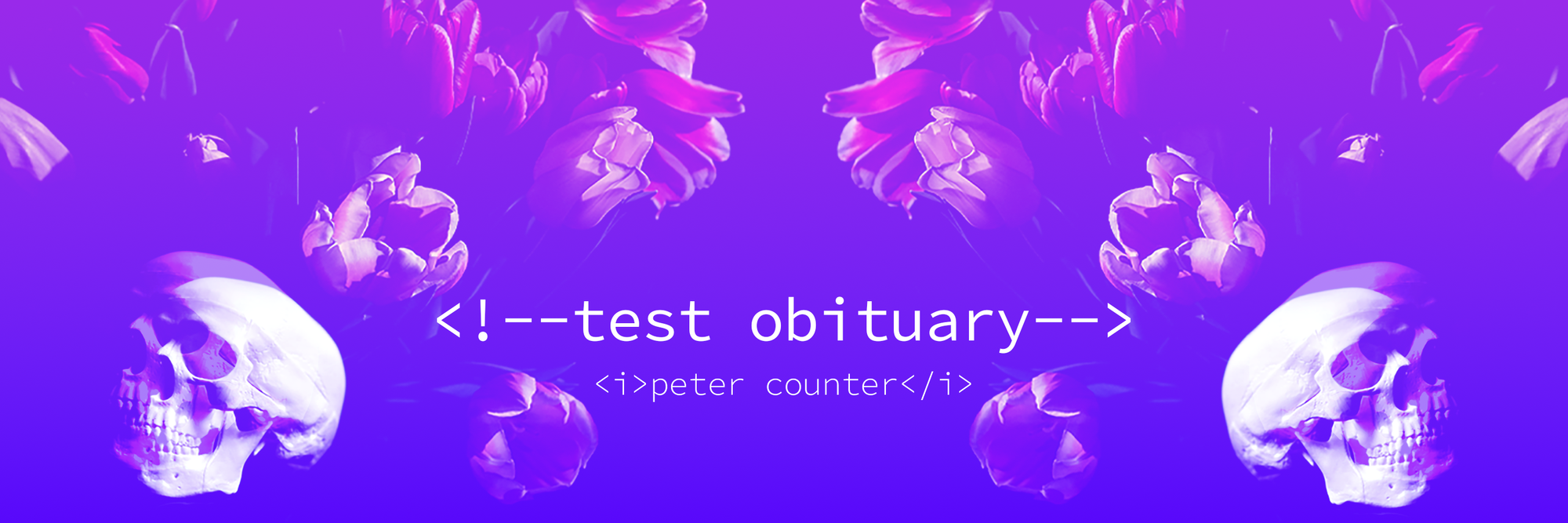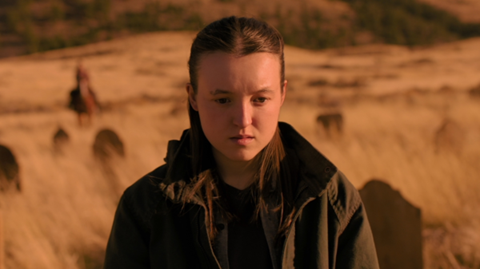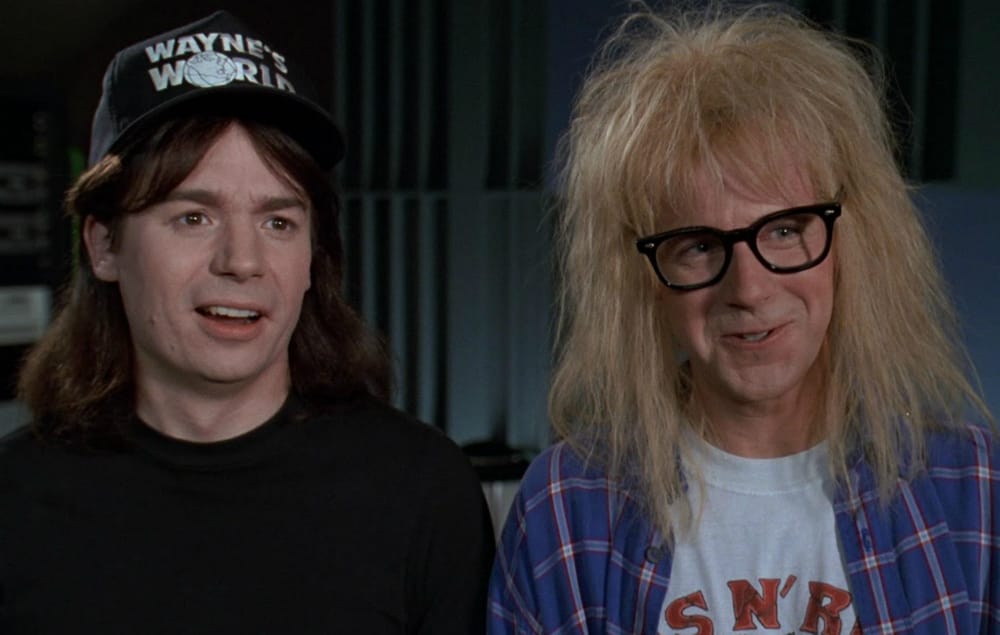Test Obituary no. 2

In this Test Obituary you will find:
- The Rainbow Effect (An attempt to elevate mediocre art)
- The Ellie Effect (Some ideas about revenge stories)
- The Myers Effect (A modest hope for CanCon)

The Rainbow Effect
Coldplay
Arcade Fire has a new album coming out and I’m not interested. In fact, I’m hurt. In the wake of the 2022 sexual misconduct allegations against frontman Win Butler—allegations that include sexual assault—the band’s music has become tainted. And that sucks. The earnest expressions of pain and faith in their 2007 record, Neon Bible, provided me sanctuary in the wake of my father’s shooting, which left me psychically ravaged. I connected to a stranger’s expression when I was vulnerable, and now I find that artist despicable. And as the band decides to soldier on without as much as another word on the allegations against Butler, I feel betrayed when I hear them on the radio, which still plays Arcade Fire’s tunes without mention of the context.
Claire Dederer’s fantastic piece of modern criticism, Monsters: A Fan’s Dilemma—which I’m about half way through reading—thoroughly explores the relationship between men, the art they make, and what a fan experiences and desires when engaging in the human relationships facilitated by music, literature, and film. Early on in the book, Dederer articulates the retroactive effect bad behavior can have on an artist’s back catalogue. She calls it a stain. I found that to be a profound image. And as I thought it over in the context of my own relationship with art, I began to wonder: what happens when we connect an artist’s good actions to their mediocre work?
In the name of science, I looked up Coldplay’s aggressively annoying 2024 album Moon Music, and skipped to what I believe to be the most insufferable artistic choice of the band’s career: an unpronounceable song called 🌈. As the group slid into a tidal force of soft post-rock, I pulled up Coldplay’s website and read about how they don’t charter flights on tour whenever possible, and remembered hearing the boys sometimes take public transit to their gigs. While frontman Chris Martin warbled through his best Sigur Ros impression and sang about (what else) the stars in the sky, I considered the ingenuity of powering the sound and lights at Coldplay concerts with special floor pads that convert audience movement into electricity. And as the song, by a British band of white dudes, deployed a sample of Maya Angelou talking about rainbows, I asked myself: “Is this so bad, considering these guys are delaying my climate induced death while the rest of the music industry is ignoring alleged sex pests?”
The answer is no. It’s not that bad. Thanks Coldplay.

The Ellie Effect
The Last of Us
[This section contains SPOILERS for The Last of Us season 2, episode 2, "Through the Valley"—if that is something you want to avoid, please scroll down until you see Mike Myers.]
Speaking of British artists concerned with the climate crisis, Bella Ramsey insisted on a green rider in their contract for the current season of HBO’s The Last Of Us. In an interview with The Hollywood Reporter, Ramsey suggested this was possible through the clout they now have thanks to the events of the season’s second episode. Pedro Pascal’s character Joel was murdered, allowing Ramsey to ascend to number one on the call sheet, where they can fight against the super hurricanes and megafires alongside Coldplay.
Up until now I haven’t watched much of The Last Of Us because its plot adheres so closely to the video games it's based on, which I have thoroughly played. And as you can imagine, they are not exactly fun experiences. I recall when the first entry came out, Kumail Nanjiani and Emily V. Gordon suggested on their podcast that The Last Of Us shouldn’t be called a game on account of it being so miserable. Is it play to bash a realistically animated human NPC to death with a brick as they beg for their life? It was an interesting question at the time, one that the second game, The Last of Us Part II, took a strong stance on: yes, brutality is a game.
In the wake of Joel’s death, Ramsey's character Ellie is swept up in the emotions of revenge. This is a narrative I thought I could get behind. Not only had I spent enough hours controlling Joel in the first game to connect to him, my own father was shot by a stranger once, and I'm prone to fantasizing about revenge. Unfortunately, the game got in its own way. Revenge makes murder precious, and, in The Last of Us Part II, the gameplay trivializes it. There are no encounters with hostile NPCs that can be overcome non-lethally. You have to kill people for non revenge reasons, and after stabbing my first two-or-three dozen enemies to death with makeshift shivs, I no longer felt invested in Ellie’s bloody project. She becomes a multiple murderer of the most brutal degree.
Because TV doesn’t need to engineer interactive challenges, HBO’s adaptation of The Last of Us has a chance to remedy that contradiction and give value back to Ellie’s revenge plot. And I think that’s worth retreading a known story for. Iteration across media can help us refine artistic expression. And if I’m being honest, I also want to support Bella Ramsey. After all, they’re supporting me and the planet I play video games on.

The Myers Effect
CanCon
Not everyone gets to make climate demands with their art. A lot of us are lucky enough if we get to express ourselves to an audience at all. In Canada, for most creators, making art means compromise. In fact, compromise is the traditional career goal for the writers, actors, filmmakers, and musicians up here. If you want to make it big, you have to make it in America. Obviously, that’s becoming a problem in our current political climate of Great White North nationalism.
The phrase “elbows up” was popularized earlier this year by Mike Myers, a comedian from Scarborough that’s living the dream. He moved to the states and made it bigger than you can imagine. So big that in March he went on Saturday Night Live and minted the Gordie Howe reference as catchphrase that revived the Liberal party and emboldened Canadians from across the country to forsake the United States. You know who couldn’t have done that? Any artist living and working in Canada. And it’s not the artists’ fault—we have amazing music, film, and literature in this country. The problem is that no one, especially the people responsible for the infrastructure used to market that art and entertainment, cares.
The Liberals won the 2025 federal election partially because of that phrase, which was reintroduced to us on an American TV show and used in a campaign ad featuring a rinkside conversation between Myers and Prime Minister Mark Carney. Clearly art is important in this moment, when many Canadians want unity in the face of threatened annexation. But when I open up the Liberal platform, hit crtl+f, and search for “art,” it’s only mentioned once in a broad gesture toward funding the Canada Council for the Arts and giving more money to the CBC. The search brought up other hits, though. One for “artillery,” another for “artificial intelligence,” both spoken of with more gravity. But if we can learn anything from this historic election, it’s that two words spoken by an artist we can claim as "one of us" is more powerful than increased border security and overhyped automation software. If we are going to fight for our sovereignty, we need to keep our storytellers. At least then, next time we need to rally around a national memory, we won’t have to get it from an artist who saw better opportunities elsewhere.
PETER COUNTER is a culture critic writing about television, video games, film, music, and technology. He is the author of Be Scared of Everything: Horror Essays and How to Restore a Timeline: On Violence and Memory.
TEST OBITUARY is a journal where he explores unfinished ideas about culture and shares it with you. If you would like to get in contact you can email: contemplatethevoid@gmail.com